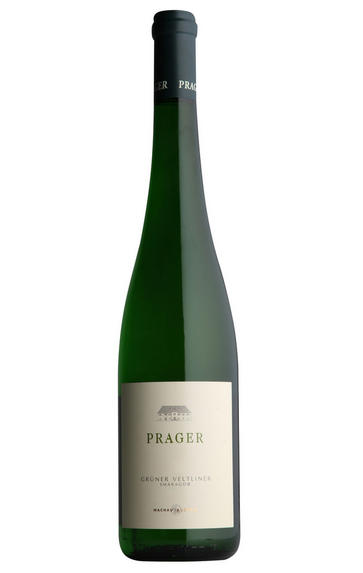
2021 Grüner Veltliner, Smaragd, Achleiten, Stockkultur, Prager, Wachau, Austria
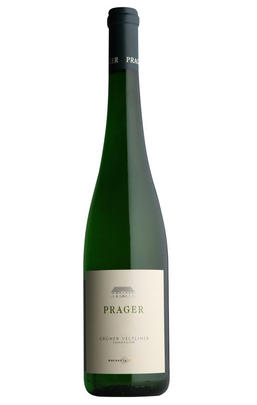
About this WINE
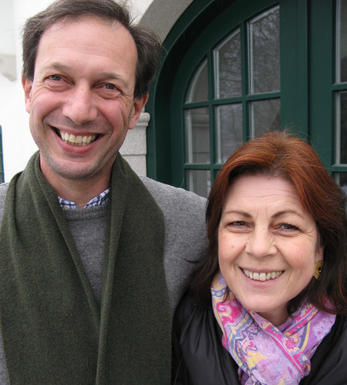
Weingut Prager
Weingut Prager is run by Toni Bodenstein, son-in-law of Franz Prager and one of the most celebrated winemakers in Austria today. Toni has run the estate for a number of years now and is the foremost authority in the region on the hugely diverse microclimates across the valley. Earnest but very likeable, he has made a minute geological study of this extraordinary terroir. Southfacing and running down to the Danube, his Achleiten vineyard yields both Grüner Veltliner and Riesling from the top Smaragd classification.
In short the wines are incredibly rich but also fresh and crisp. The Grüner Veltliner has a black pepper facet and a steely backbone to frame its feminine charms; the Riesling is farmed from 24 terraces, each one contributing a rich nuance. From the high ground comes the Wachstum Bodenstein Riesling, an undeniably complex beast, perfumed and exotic yet seriously dry and steely; an awakening enigma. With flavours running the gamut and scents of great sensibility, these wines are united by an incredible purity.
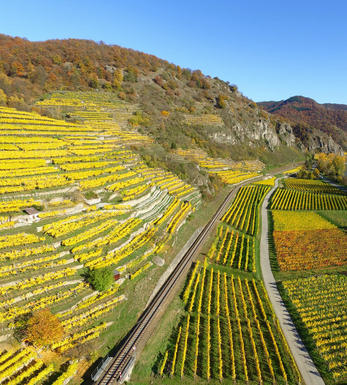
Wachau
The sweeping, steep terraces of the Wachau, in Lower Austria, on the northern banks of the Danube, an hour’s drive west from Vienna, are home to Austria’s greatest dry white wines.
Here Riesling and Grüner Veltliner excel in producing wines of startling purity and pristine intensity. The climate changes slightly to produce the warmer, richer wines around Dürnstein and Loiben, to steely yet opulent wines around Spitz.
Recommended Producers
Toni Bodenstein of Weingut Prager epitomises the former, whilst Franz and Irmgard Hirtzberger’s vineyards are the ultimate expression of the latter. The region uses a unique system of classification to indicate the level of ripeness at harvest. Steinfeder is the lightest, with an alcohol of around 10%, then Federspiel, which must not exceed 12% and finally Smaragd, named after an emerald green lizard found in the vineyards, which are assertive, late-harvested wines, but fermented to dryness.
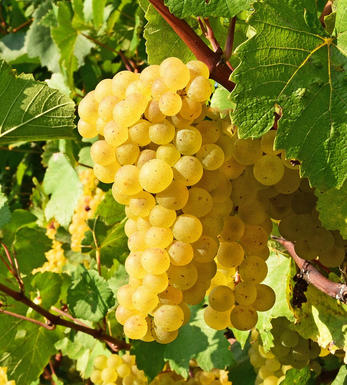
Grüner Veltliner
Grüner Veltliner is Austria's most famous grape variety. It is indigenous to Austria and is grown extensively in every Austrian wine region with the exception of Steiermark. It constitutes 36% of all vineyard plantings with the best wines coming from the north-east of the country, particularly regions such as the Wachau, Kamptal and Kremstal which border the Danube river.
Grüner Veltliner is a late ripening variety that typically produces wines that are pale green in colour and display fruit notes of grapefruits, limes, pears, and sometimes hints of white pepper. They normally possess a steely backbone of acidity which enables the best bottles to age gracefully. The grape's natural acidity accompanied by its restrained and understated fruit characters makes its wines ideal partners for food. A marvellous alternative to the more mainstream white grape varieties.


Buying options
Add to wishlist
Description
The Stockkultur comes from a small parcel of low-pruned, single-pole vines on the steepest gradients at the top of the Achleiten vineyard. The concentration is evident from the sweet, intense nose. Such power is here alongside the green apple skin and honeydew melon notes.
The palate is rich and very concentrated yet so poised and stony at the same time. A creamy note of lemon-infused panna cotta mingles with an almost tart kiwi character. The finish is broad and textured yet with distinct herbal qualities of okra and tarragon. This is an intensely focused wine of depth and character.
Drink now to 2029
Catriona Felstead MW, Senior Buyer, Berry Bros. & Rudd (September 2022)
wine at a glance
Delivery and quality guarantee